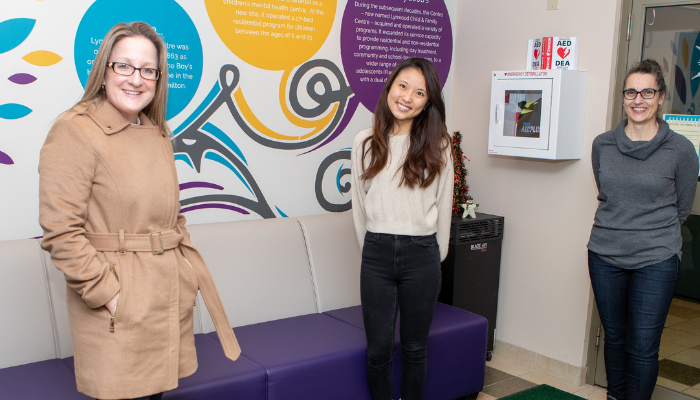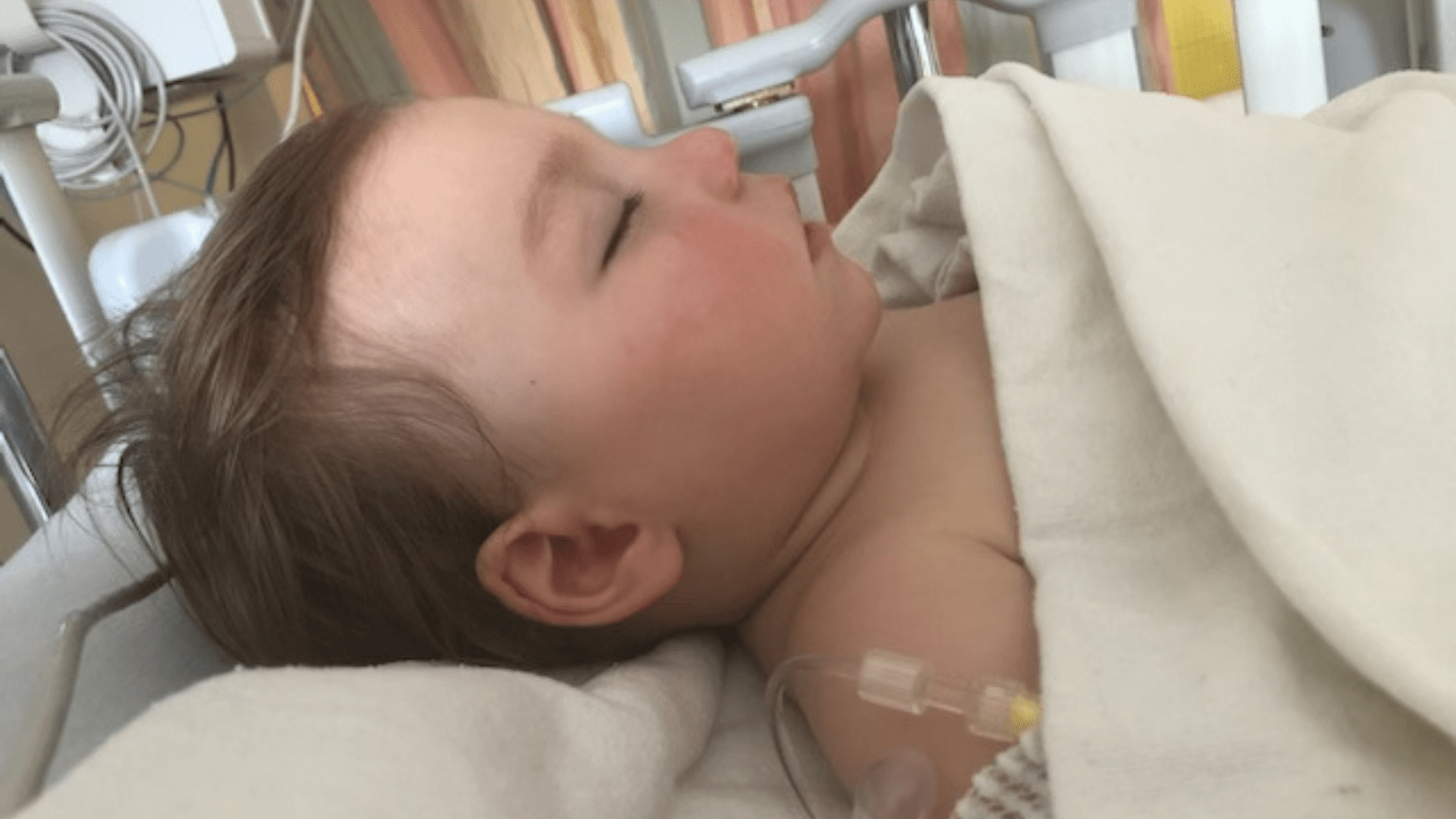First aid with mental health at its heart

McMaster University researchers adapt psychological first aid program to help mental health professionals care for children, youth, and families experiencing the stresses of COVID-19.
The COVID-19 pandemic has affected everyone. It has upended lives. It has gripped us with fear and uncertainty. Provincial lockdowns have restricted social activities. Frontline workers have experienced the dual pressures of providing essential services while having to manage the impact of the pandemic on their own lives.
Families have been among the hardest hit. Virtual schooling, remote work, job losses, financial worries, caring for older parents, a lack of outdoor activities and social outlets, and other factors have made life even more difficult for children, youth, and their parents, creating high levels of stress, as well contributing to the development or worsening of mental health concerns, like anxiety or depression. While families may have sought help, mental health professionals were not necessarily prepared to deal with the specific stresses of the pandemic.
Researchers at McMaster University felt compelled to do something to prepare mental health professionals and give them the language and the skills to effectively advise and support their clients.
Melissa Kimber is an assistant professor in the department of psychiatry and behavioural neurosciences at McMaster. Her research focuses on mental health and supporting children, youth and families who have been affected by different forms of family violence, including intimate partner violence and child maltreatment.
With funding from the Canadian Institutes of Health Research, Kimber co-led a project with McMaster colleagues Noam Soreni and Sheila Harms, both of whom are child psychiatrists and associate professors, to implement a psychological first aid (PFA) program named LIVES for Families to address the unique circumstances of the COVID-19 pandemic and train mental health professionals in how to use it.
LIVES for Families is an adapted version of the LIVES PFA program originally developed by the World Health Organization. The original focus of that program was to support women who have experienced intimate partner and sexual violence. It has since been used to address the mental health impact of natural disasters and major events.
The team chose to adapt the LIVES model to the COVID-19 context because it is brief and can be easily integrated into the ongoing work, skills, and knowledge of front-line health and mental health professionals.
“LIVES for Families is designed to provide brief, focused, emotional and practical support to children, youth, adults and families during large-scale crises,” said Kimber.
Kimber and her research team collaborated with staff at the Lynwood Charlton Centre, Hamilton’s lead agency for mental health services provided to children, youth, and their families.
The Centre’s family engagement lead Louise Murray-Leung gathered input from families with experience accessing child and youth mental health services, while a youth social worker at the Centre, Haruka Kanai, engaged a team of young people with lived experience of mental health concerns, who helped identify sources of stress for themselves and their peers and shape the training materials, so they addressed concerns relevant to young people and their families.
“Our roles meant we already had a good relationship with our youth and family engagement team members, which made it easier to involve them in the project and to help the researchers access their expertise,” said Murray-Leung. “The team was highly committed to the project even though they were themselves being stretched by the demands of the pandemic.”
Although focused on mental health professionals, the youth and family team saw the potential for making the training program available to other frontline workers, including family physicians, nurses, clergy, teachers, guidance counsellors, peer support counsellors, and community service providers, and members of the community who interact with youth and families in any area of their daily life, such as food banks, community centres, and neighbourhood associations.
In her work with youth, Kanai recognized the importance of creating a safe space where her team could share their experiences and ideas.
“By drawing on their experiences, they provided valuable insights on the scenarios prepared for the training program,” said Kanai, who was completing her master’s degree in social work during the project and is now employed as a social worker at the Centre after finishing her degree.
For example, a common concern the youth team identified to be addressed in the training was the issue of finding privacy at home while taking virtual therapy sessions with mental health counsellors. Other stressors were missing celebrations with friends and family, unsafe or unstable households, too much screen time, and the uncertainty of not knowing when things would get back to normal.
The youth team made other key contributions including informing content in the training about the disproportionate impact of COVID-19 for racialized and Indigenous youth as well as gender and sexually diverse communities.
The LIVES for Families program addresses COVID-19 stress in several ways. It educates people on the possible mental impacts of COVID-19 and pandemic restrictions. It affirms that the stress and distress that children, youth, and families are experiencing makes sense and acknowledges that the evidence about impacts and how to address them is evolving. Finally, it provides concrete strategies for providing emotional and practical support for those experiencing pandemic-related stress.
Strategies covered in the training include validating emotions, creating safety plans for those who contract COVID-19, improving sleep habits, monitoring screen and social media use, trying to maintain consistent structure, finding connection, and identifying and referring clients to more structured self-help or professional services.
The training was delivered to 59 mental health professionals, including youth pastors, clinical psychologists, social workers, child and youth workers, and physicians, who work in southern Ontario. The participants received three virtual training sessions spaced two weeks apart.
In the first session, they learned the core elements of the program. In the next two sessions, they practiced the elements of the program using various scenarios and teaching tools to build their competence and confidence to use the program with the families they work with.
The research team surveyed the participants to evaluate their perceived preparedness and ability to recognize and respond to COVID-related stressors in their clients at three timepoints: before the training started, after the first practice session, and six months later. At the six month follow up, participants were asked about their experience of burnout and secondary traumatic stress.
The results showed significant positive changes among participants from the pre- to mid-training time points in self-efficacy and preparedness scores. These positive changes were maintained at the six month follow up. As for the mental health of participants, preliminary analyses have indicated that participants were experiencing high levels of worry, as well as some, burnout, and secondary traumatic stress.
Interviews conducted with 31 of the 59 participants found that they enjoyed the training and perceived that it was effective in preparing them to work with families experiencing COVID-related stressors. Importantly, there was strong consensus among the participants that it was very helpful to connect with other providers who have had the difficult role of providing essential services while having to manage the impact of the pandemic on their own lives.
“We want to highlight that while, in some cases, these professionals may have been emotionally exhausted and struggling, they were still committed to learning what they can and doing what they can to support the well-being of their clients,” said Kimber.
Given the positive results, Kimber and her colleagues have since received funding from the Joseph Brant Hospital Mental Health Research Program to implement the program with mental health and non-mental health clinicians in the Halton and Hamilton regions.
The next step will be to conduct a clinical trial on the program to determine whether the positive results for mental health professionals can be repeated, and whether it leads to positive impacts for their clients.
This evidence will hopefully support the widespread use of ‘LIVE for Families’ and provide mental health professional with a reliable program that will not only help their clients cope with the lasting effects of the COVID-19 pandemic, but also ready them for the possibility of other pandemics in the future.
NewsRelated News
News Listing

From seed to success: How philanthropy fuels child health research at McMaster
Funding, News, Research, Research in the Media
1 week ago

New funding boosts specialized neonatal care at St. Joseph’s Healthcare Hamilton
Announcements, Funding, News
November 13, 2024

Hamilton Health Sciences ➚
RSV hits close to home for McMaster Children’s Hospital emergency doctor
News
November 12, 2024
